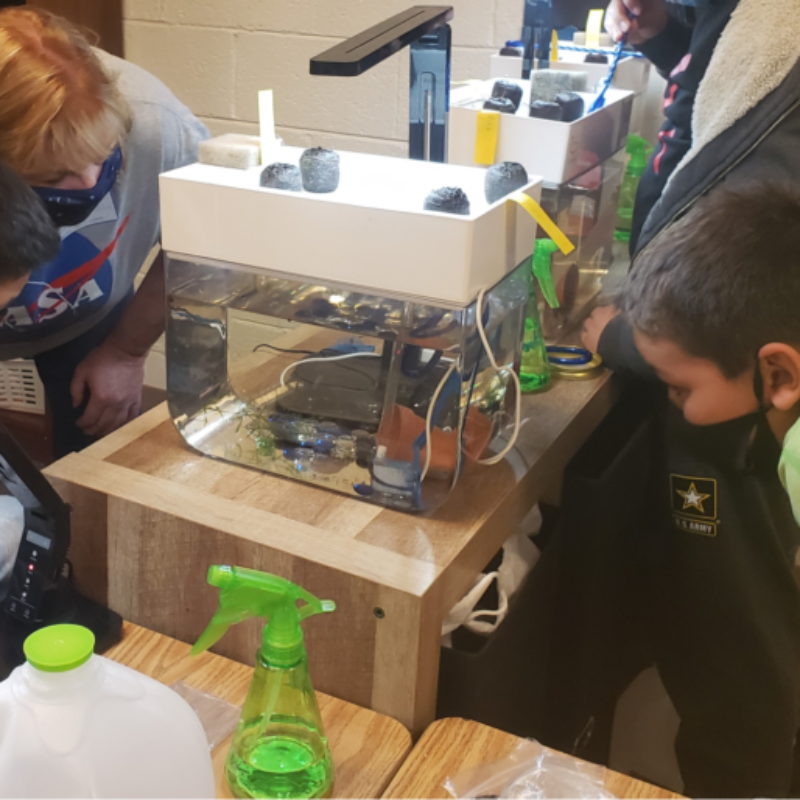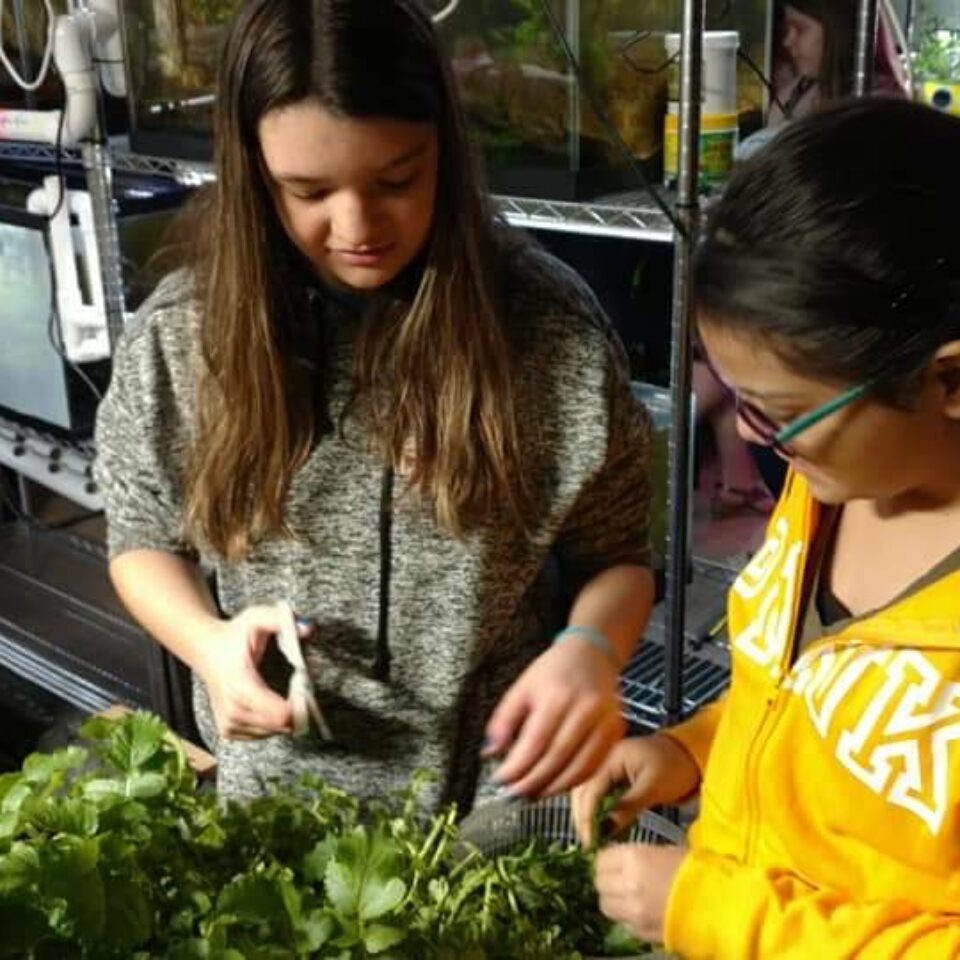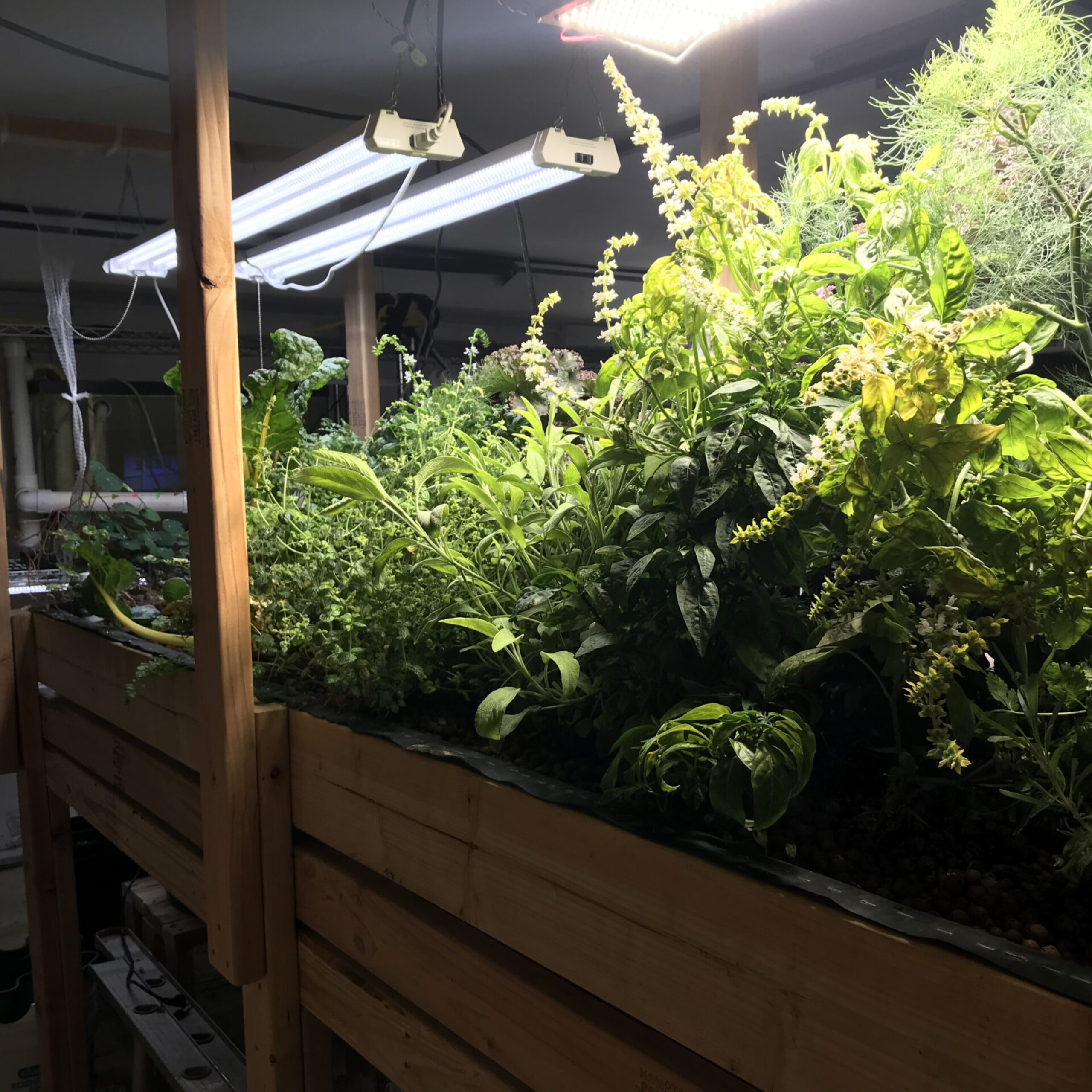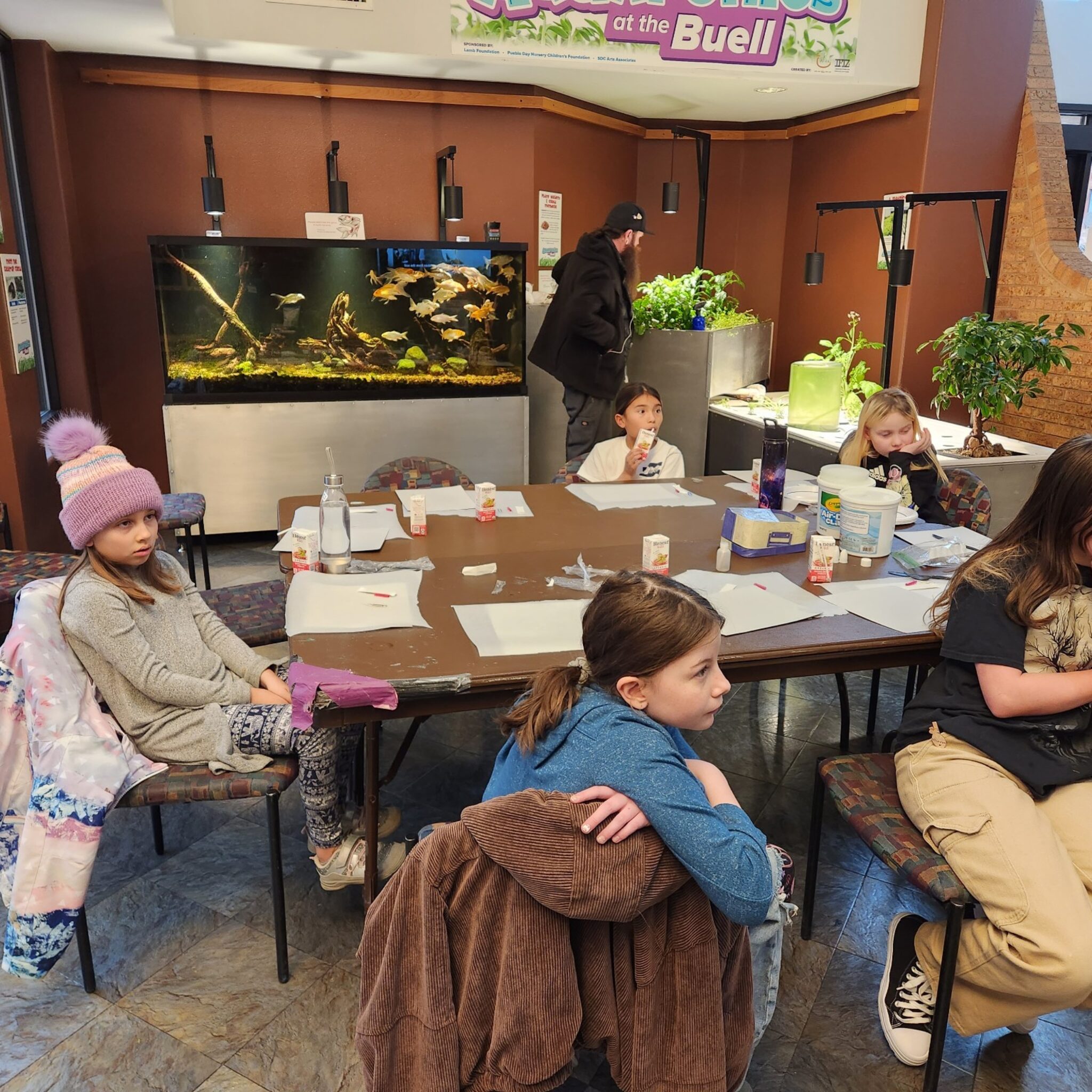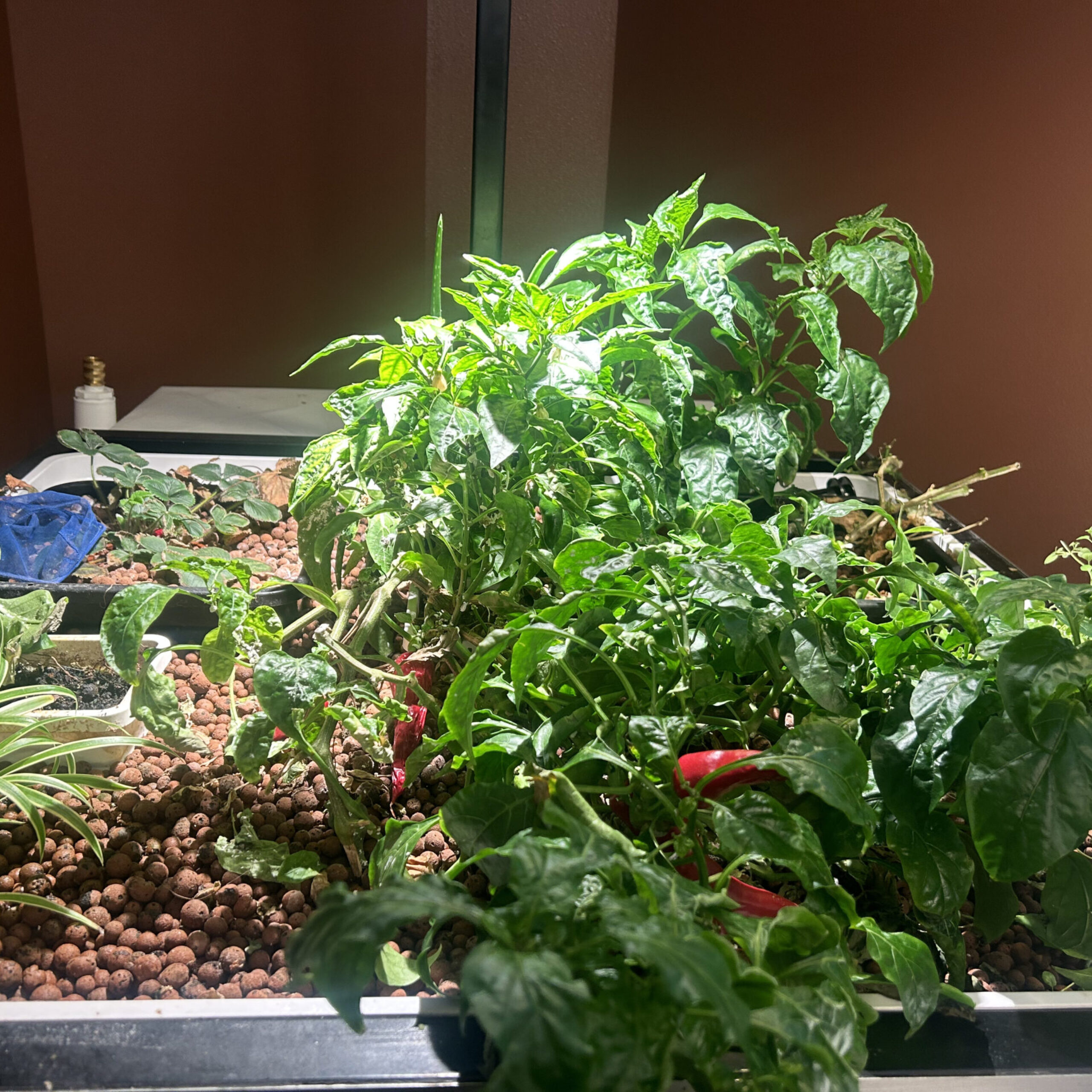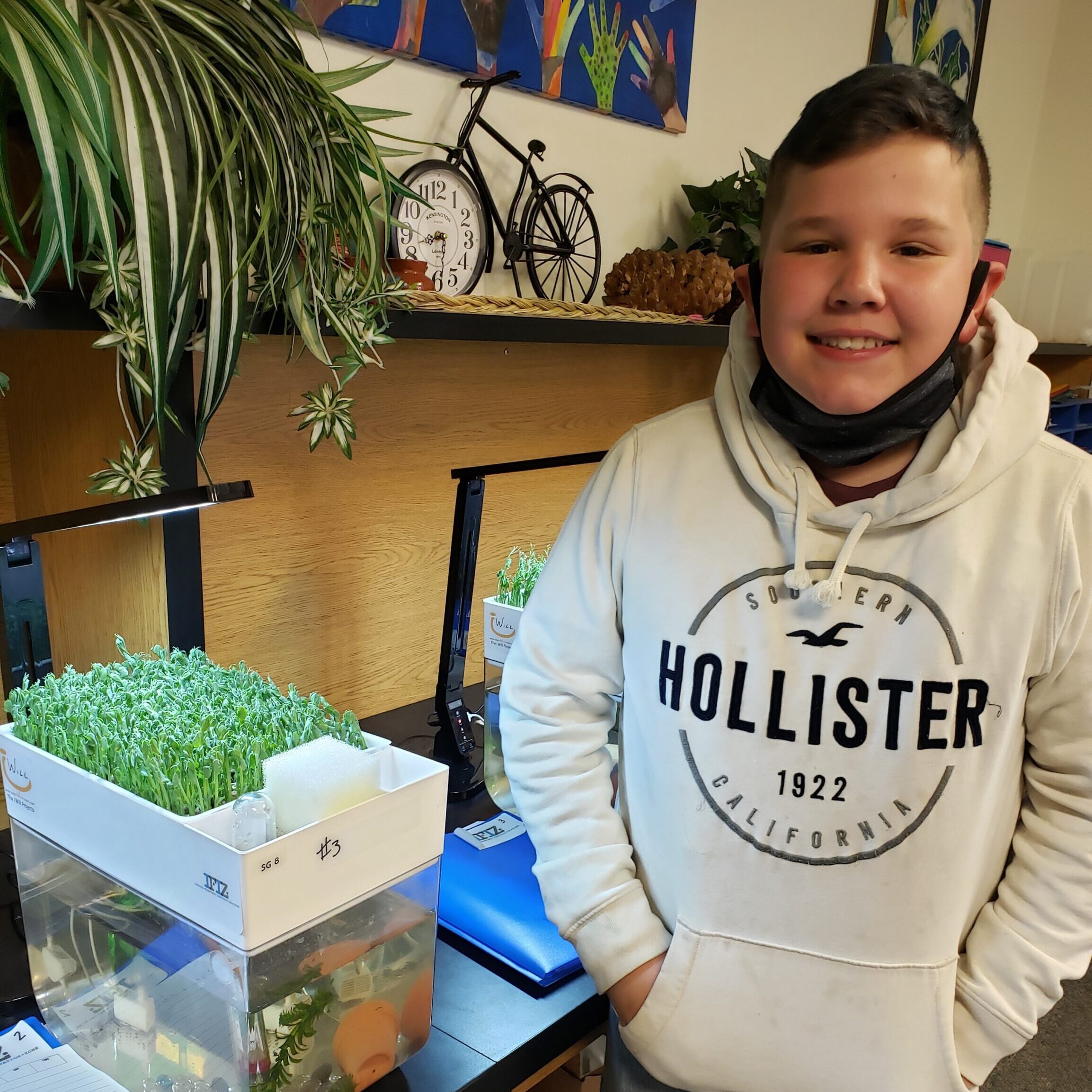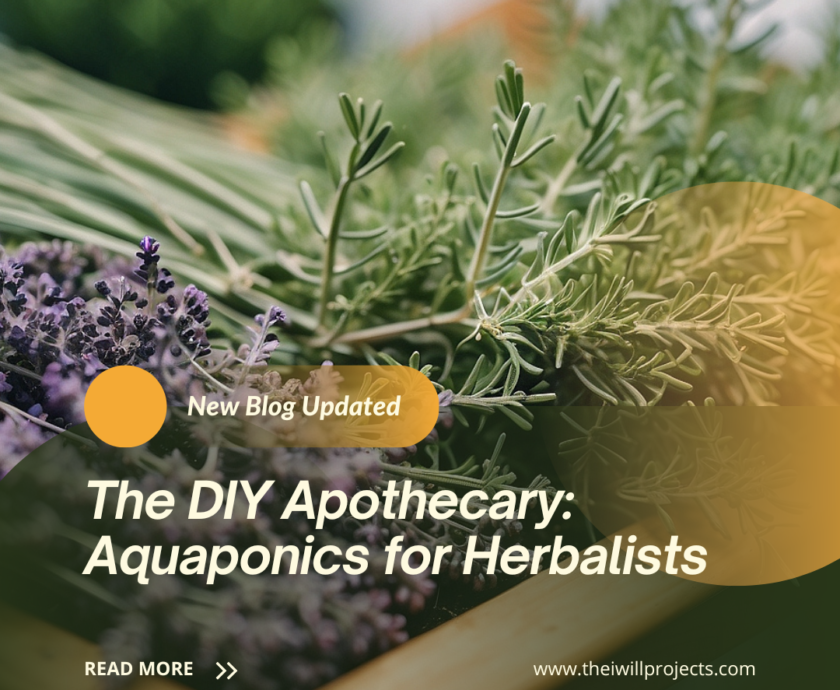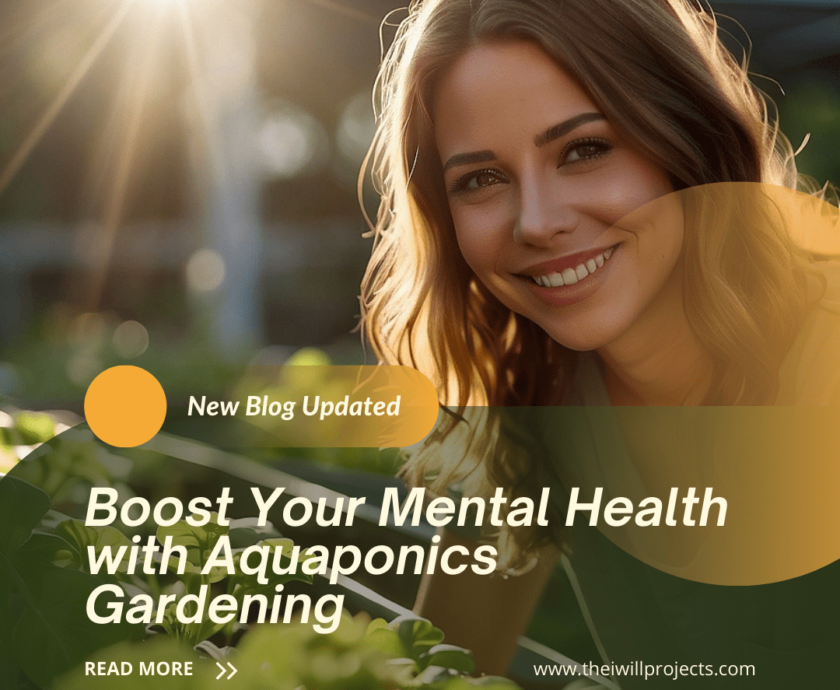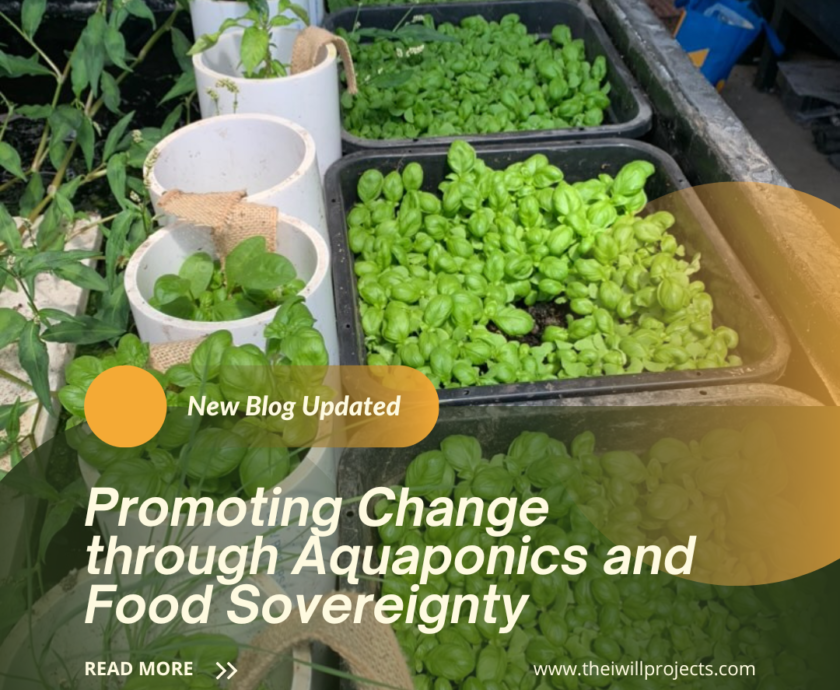“We might think we are nurturing our garden, but of course it’s our garden that is really nurturing us.” – Jenny Uglow
TweetTable of contents
- Introduction
- What is Aquaponics Gardening?
- The Science Behind Aquaponics
- How Aquaponics Benefits Mental Health
- Connecting with Nature
- Social Benefits of Aquaponics
- Aquaponics as a Therapeutic Activity
- Practical Steps to Start Aquaponics
- Maintaining Your Aquaponics System
- Tips for Success in Aquaponics Gardening
- Overcoming Common Challenges
- Conclusion
- FAQs
Introduction
Imagine combining the soothing practice of gardening with the fascinating world of aquaculture to create a harmonious, sustainable ecosystem. That’s aquaponics gardening, and it’s not just a method to grow plants and fish; it’s also a powerful tool to boost your mental health.
In this article, we’ll explore how aquaponics gardening can enhance your well-being, offering a sanctuary from the stresses of modern life.
Let’s dive into this unique gardening practice and uncover its mental health benefits.
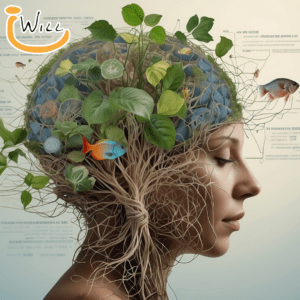
What is Aquaponics Gardening?
Aquaponics gardening is a sustainable farming method that combines aquaculture (raising fish) and hydroponics (growing plants without soil).
In this symbiotic system, fish produce waste that is converted by beneficial bacteria into nutrients for plants. The plants, in turn, filter and clean the water, which is recirculated back to the fish tank.
This closed-loop system mimics natural ecosystems and allows for efficient, year-round cultivation of plants and fish.
The Science Behind Aquaponics
Aquaponics relies on the nitrogen cycle, a natural process where fish waste is broken down by nitrifying bacteria into nitrate, a form of nitrogen that plants can absorb.
This cycle ensures a continuous supply of nutrients for the plants while maintaining clean water for the fish.
The result is a self-sustaining system that requires minimal external inputs and produces both fresh vegetables and fish.
How Aquaponics Benefits Mental Health
Stress Reduction Through Aquaponics
One of the most significant benefits of aquaponics gardening is its ability to reduce stress.
Gardening is known for its calming effects, and the addition of fish introduces a soothing, meditative element.
Watching fish swim can lower blood pressure and heart rate, promoting relaxation.
The rhythmic process of tending to plants and fish provides a break from daily worries, helping to alleviate stress and anxiety.
The Joy of Growing Your Own Food
There’s something profoundly satisfying about growing your own food.
Aquaponics gardening offers the opportunity to cultivate fresh, organic produce and fish right at home.
This connection to your food source can lead to healthier eating habits and a greater appreciation for the food you consume.
The joy of harvesting and eating what you’ve grown can boost your mood and provide a sense of accomplishment.
Building a Sense of Accomplishment
Successfully maintaining an aquaponics system requires patience and effort, but the rewards are worth it.
Each new plant or fish that thrives under your care is a testament to your hard work and dedication.
This sense of achievement can enhance self-esteem and provide a tangible reminder of your capabilities, which is especially beneficial for those struggling with feelings of inadequacy or depression.
Connecting with Nature
In our technology-driven world, it’s easy to feel disconnected from nature.
Aquaponics gardening offers a way to bring nature into your home, providing a daily reminder of the beauty and complexity of the natural world.
This connection can be incredibly grounding, helping to reduce feelings of isolation and promoting a sense of belonging.
Social Benefits of Aquaponics
Aquaponics as a Community Activity
Aquaponics gardening can also be a social activity.
Joining a local aquaponics group or participating in online forums can connect you with like-minded individuals who share your interests.
Sharing experiences, tips, and successes can foster a sense of community and support, which is vital for mental well-being.
Family Bonding Through Aquaponics
Engaging in aquaponics gardening as a family can strengthen relationships and provide a shared goal.
Children can learn valuable lessons about responsibility, biology, and sustainability, while adults can enjoy the therapeutic benefits of gardening.
Working together on an aquaponics project can create lasting memories and deepen familial bonds.
Aquaponics as a Therapeutic Activity
A Form of Horticultural Therapy
Horticultural therapy is a recognized therapeutic practice that uses gardening activities to improve mental and physical health.
Aquaponics gardening, with its blend of plant and animal care, offers a unique form of horticultural therapy.
It engages multiple senses, encourages physical activity, and provides a calming, structured environment that can be particularly beneficial for individuals with mental health issues.
Enhancing Cognitive Function
The process of managing an aquaponics system involves problem-solving, planning, and learning new skills.
These cognitive activities can help keep the mind sharp and improve mental agility.
For older adults, in particular, aquaponics gardening can be a way to maintain cognitive function and delay the onset of age-related mental decline.
Practical Steps to Start Aquaponics
Choosing the Right System
Starting an aquaponics garden doesn’t have to be complicated.
There are various systems available, ranging from small, desktop units to larger, backyard setups.
Beginners might start with a simple system, such as a media bed or a small-scale aquaponics kit, which are easier to manage and maintain.
Selecting Fish and Plants
Choosing the right fish and plants is crucial for a successful aquaponics system.
Tilapia and goldfish are popular fish choices due to their hardiness and fast growth rates.
For plants, leafy greens like lettuce, spinach, and herbs like basil and mint thrive in aquaponics systems.
It’s essential to research and select species that are compatible with your specific setup and climate.
Maintaining Your Aquaponics System
Regular Monitoring
To keep your aquaponics system healthy, regular monitoring of water quality, temperature, and nutrient levels is necessary.
Test kits are available to measure pH, ammonia, nitrate, and nitrite levels.
Keeping a log of these parameters can help you track the health of your system and address any issues promptly.
Feeding and Fish Care
Proper feeding of fish is vital to maintain a balanced ecosystem.
Overfeeding can lead to excess waste and water quality problems, while underfeeding can stress the fish.
Research the dietary needs of your fish species and establish a feeding schedule that ensures they receive adequate nutrition without overloading the system.
Tips for Success in Aquaponics Gardening
Start Small and Expand Gradually
For beginners, starting with a small, manageable system is advisable.
As you gain experience and confidence, you can gradually expand your setup.
This approach allows you to learn the intricacies of aquaponics gardening without becoming overwhelmed.
Educate Yourself
There are many resources available for learning about aquaponics, including books, online courses, community forums, and engaging tools like the aquaponics activity guide for kids.
Investing time in education can help you avoid common pitfalls and ensure the success of your garden.
Joining a local aquaponics group can also provide valuable insights and support.
Overcoming Common Challenges
Dealing with Pests
Pests can be a challenge in any garden, including aquaponics systems.
Using natural pest control methods, such as introducing beneficial insects or using organic sprays, can help manage pest populations without harming the fish or plants.
Balancing the Ecosystem
Maintaining a balanced ecosystem is crucial for the success of an aquaponics system.
This involves ensuring the right ratio of fish to plants, monitoring water quality, and making adjustments as needed.
Understanding the interdependence of the system’s components can help you troubleshoot and resolve issues effectively.
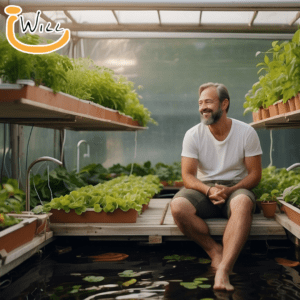
Conclusion
Aquaponics gardening is more than just a method of growing plants and fish; it’s a pathway to enhanced mental health and well-being.
By reducing stress, fostering a sense of accomplishment, and providing a meaningful connection to nature, aquaponics can significantly improve your quality of life.
Whether you’re seeking a new hobby, a way to grow your own food, or a therapeutic activity, aquaponics gardening offers a unique and rewarding experience.
Start your journey today and discover the mental health benefits of this innovative gardening practice.
FAQs
Aquaponics gardening reduces stress by providing a calming activity that involves caring for plants and fish, which can lower blood pressure, reduce anxiety, and offer a meditative experience.
Is aquaponics hard to maintain?
Aquaponics systems, once properly established, can be relatively easy to maintain with regular monitoring and care. Key tasks include ensuring the balance of the ecosystem, monitoring water quality parameters, and feeding the fish appropriately. While there is a learning curve associated with understanding the interdependencies within the system, many hobbyists find that the effort is manageable and rewarding.
What types of fish and plants are best for beginners in aquaponics?
For beginners, hardy fish like tilapia or goldfish are recommended. Leafy greens like lettuce, spinach, and herbs such as basil and mint thrive well in aquaponics systems.
What plants are good for aquaponics?
Several types of plants thrive in aquaponics systems. Leafy greens such as lettuce, spinach, and kale are particularly well-suited due to their rapid growth and nutrient needs. Herbs like basil, mint, and parsley also do exceptionally well. Additionally, certain fruiting plants like tomatoes, peppers, and cucumbers can be grown successfully, although they may require more attention to nutrient levels and system design.
Can aquaponics gardening be a social activity?
Yes, aquaponics gardening can be a social activity by joining local aquaponics groups or online communities, sharing experiences, and collaborating on projects, which can enhance social connections and support.
Do plants grow faster in aquaponics?
Plants often grow faster in aquaponics systems compared to traditional soil gardening. This accelerated growth is attributed to the constant availability of nutrients in the water and the optimal growing conditions provided by the system. The efficient nutrient uptake and oxygenation of plant roots contribute to robust and rapid plant development.
Can you eat the fish from aquaponics?
Yes, the fish raised in aquaponics systems can be consumed, provided they are suitable for human consumption. Common edible fish species used in aquaponics include tilapia and catfish. It is important to follow appropriate care and feeding practices to ensure the health and quality of the fish.
Can you grow tomatoes in aquaponics?
Tomatoes can indeed be grown in aquaponics systems. They typically require more nutrients and support structures for their vines compared to leafy greens and herbs. With adequate care, including proper nutrient management and pruning, tomatoes can thrive and produce abundant yields in an aquaponics environment.
Do aquaponics need sunlight?
Aquaponics systems, like all plant-growing environments, benefit significantly from natural sunlight. Plants require light for photosynthesis, which is essential for their growth. However, if natural sunlight is insufficient, particularly in indoor or shaded setups, artificial grow lights can be used to provide the necessary light spectrum and intensity for healthy plant development.
Do you need special seeds for aquaponics?
No special seeds are required for aquaponics gardening. Standard seeds used in traditional soil gardening are suitable for aquaponics. However, it is advisable to select high-quality, non-GMO seeds for the best results. Ensuring that seeds are free from chemical coatings or treatments is also important to maintain the integrity of the aquaponics system.
Is aquaponics self-sufficient?
Aquaponics systems are designed to be highly efficient and sustainable, but they are not entirely self-sufficient. Regular human intervention is needed to monitor water quality, feed the fish, and harvest the plants. While the system itself recycles water and nutrients, ongoing maintenance and management are necessary to ensure its continued productivity and balance.
The I Will Projects, a 501c3 Non-Profit, promotes diverse solutions for global challenges. Our IFIZ education programs, emphasizing aquaponics, and insect farming, empower communities through knowledge, collaboration, and sustainable innovation.
Disclaimer: This blog post provides general health and nutritional information. The author is not a medical professional, and the content should not be used as a substitute for professional medical advice, diagnosis, or treatment. Any application of the material provided is at the reader’s discretion and is their sole responsibility. If you have a medical concern or emergency, please consult with a healthcare provider.



